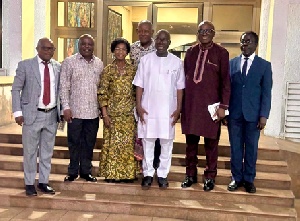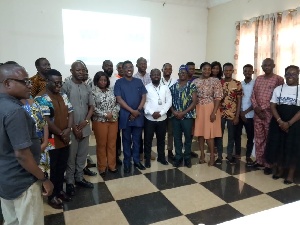Business News of Thursday, 15 May 2025
Source: www.ghanawebbers.com
Harness technology for transformative public sector M&E – Prof Appiah-Adu
Technologies like mobile data collection and cloud analytics are improving M&E processes.
Prof. Appiah-Adu compared global best practices with Ghana’s experience. He mentioned Malaysia’s PEMANDU model and Canada’s M&E framework as effective examples.
He highlighted how artificial intelligence, cloud dashboards, and blockchain can transform governance. These technologies can enhance sectors such as healthcare, education, agriculture, and social services.
Cloud investment enables real-time data collection and better collaboration among agencies.
Reflecting on Ghana's M&E journey, Prof. Appiah-Adu noted the establishment of the PCMEU from 2002 to 2007. This unit laid the groundwork for digital data systems in various sectors.
The PCMEU led to platforms like eHIS, eMIS, and aMIS. These systems improved targeted reforms and resource allocation.
He praised the government's shift from paper-based M&E to digital systems. This change created a comprehensive framework for data collection, analysis, and public reporting.
However, he warned that digital transformation has challenges. Issues like data privacy, cybersecurity, and ethical concerns must be addressed for inclusivity.
Prof. Appiah-Adu called for sustained investment in digital infrastructure and collaboration across sectors. He urged governments, academia, private sector partners, and development organizations to work together on resilient M&E frameworks.
He emphasized blockchain technology's role in creating high-trust data environments but cautioned against a one-size-fits-all approach.
“Blockchain is powerful but must be applied contextually,” he said.
The professor concluded that technology alone isn't enough for successful public sector M&E. Institutional integrity and a cultural shift toward transparency are also crucial.
“No technological sophistication can replace a mindset committed to trust,” he stated.
His lecture focused on using technology for transformative monitoring and evaluation. The goal is sustainable development through improved accountability and data-driven decision-making.











